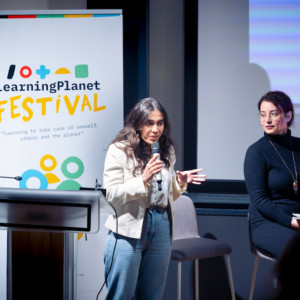World Teachers’ Day is back, as always, on 5 October! On this occasion, we aim to celebrate inspiring teachers around the world, whose work deserves to be highlighted. In this article, meet Joshua from Uganda, who promotes permaculture education and global citizenship in her school.
We met Joshua through the Teachers for the Planet Programme, a global coalition co-led by the Aga Khan Foundation, Learning Planet Institute and Teach For All, which witnesses inspiring examples of outstanding educators all around us. It puts teachers and education leaders at the centre of the educational response to our climate crisis.
Are you an exceptional educator like Joshua, working to address the climate crisis in your school? We are now collecting solutions, 100 of which will be presented to policymakers at COP28.
Who / what are your sources of inspiration?
Since my childhood, I loved playing with kids and teaching them new skills and thus felt inspired to become a teacher. Now I have technical skills in permaculture I admire sharing my knowledge. It inspires me to see my learners being able to do the things that I teach them, like making contour lines with the help of A frame and how to determine which type of soil is suitable for farming through observing weeds and other plants that have grown in that area.
Helping people is a source of my happiness and I get to do this via teaching regarding permaculture, especially in communities with vulnerable people where you know it will help people be able to get food to eat.
How do you involve kids on topics that are important to you?
Kids are curious and interested to learn if you make topics relevant to them. I try to make lessons fun and to include food growing as it motivates them. They love food, having lived on the streets and been hungry. They like to get involved in fruit tree planting, like mangoes, as these help in improving their nutrition and also control soil erosion especially on the steep slopes of land.
These trees also help in our fight against deforestation and climate change, as the children see them as useful due to the fruits. Kids also like to be involved in practical works like making sack gardens and food towers used for vegetable growing like spinach, carrots and cabbages.
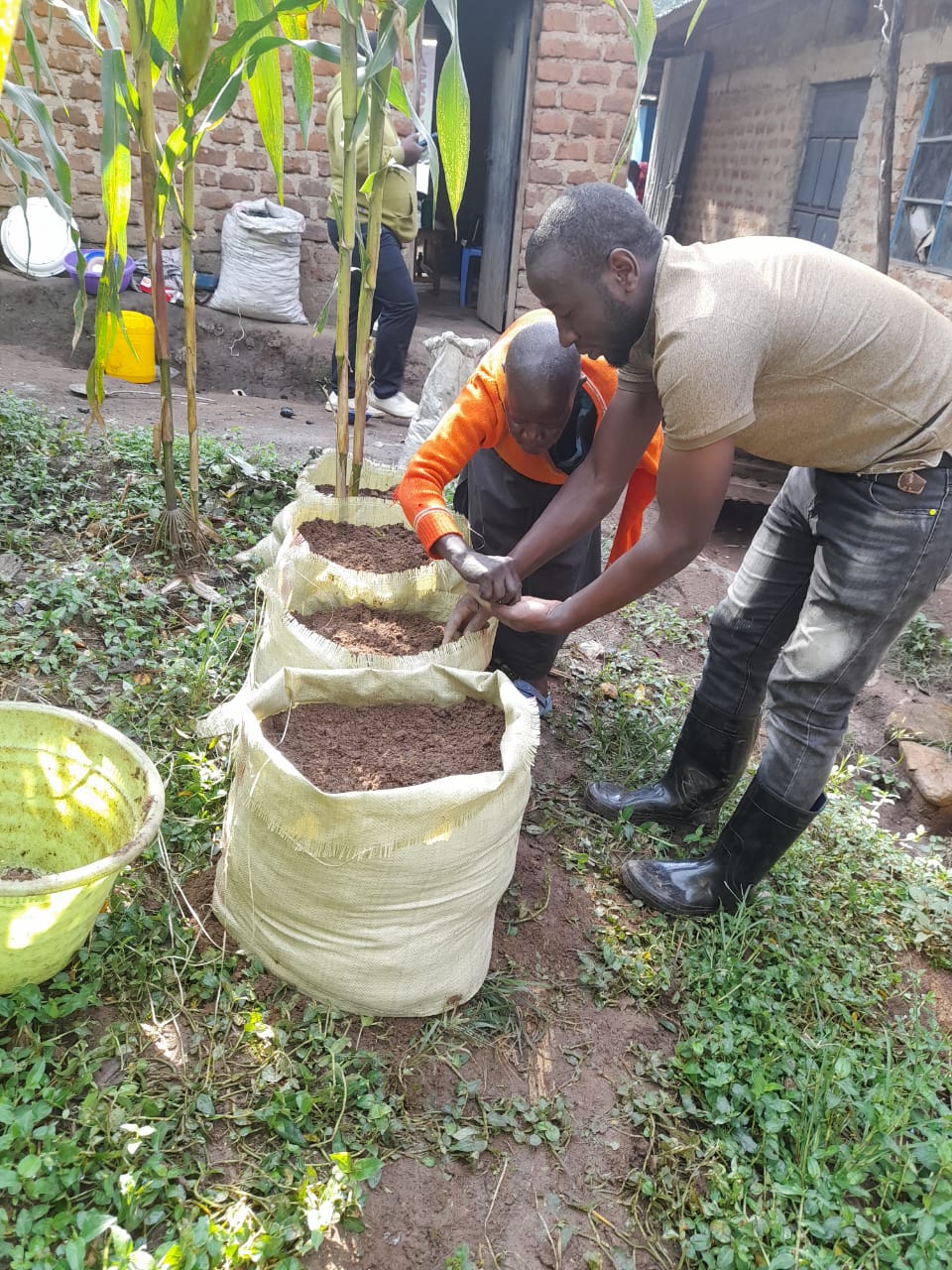
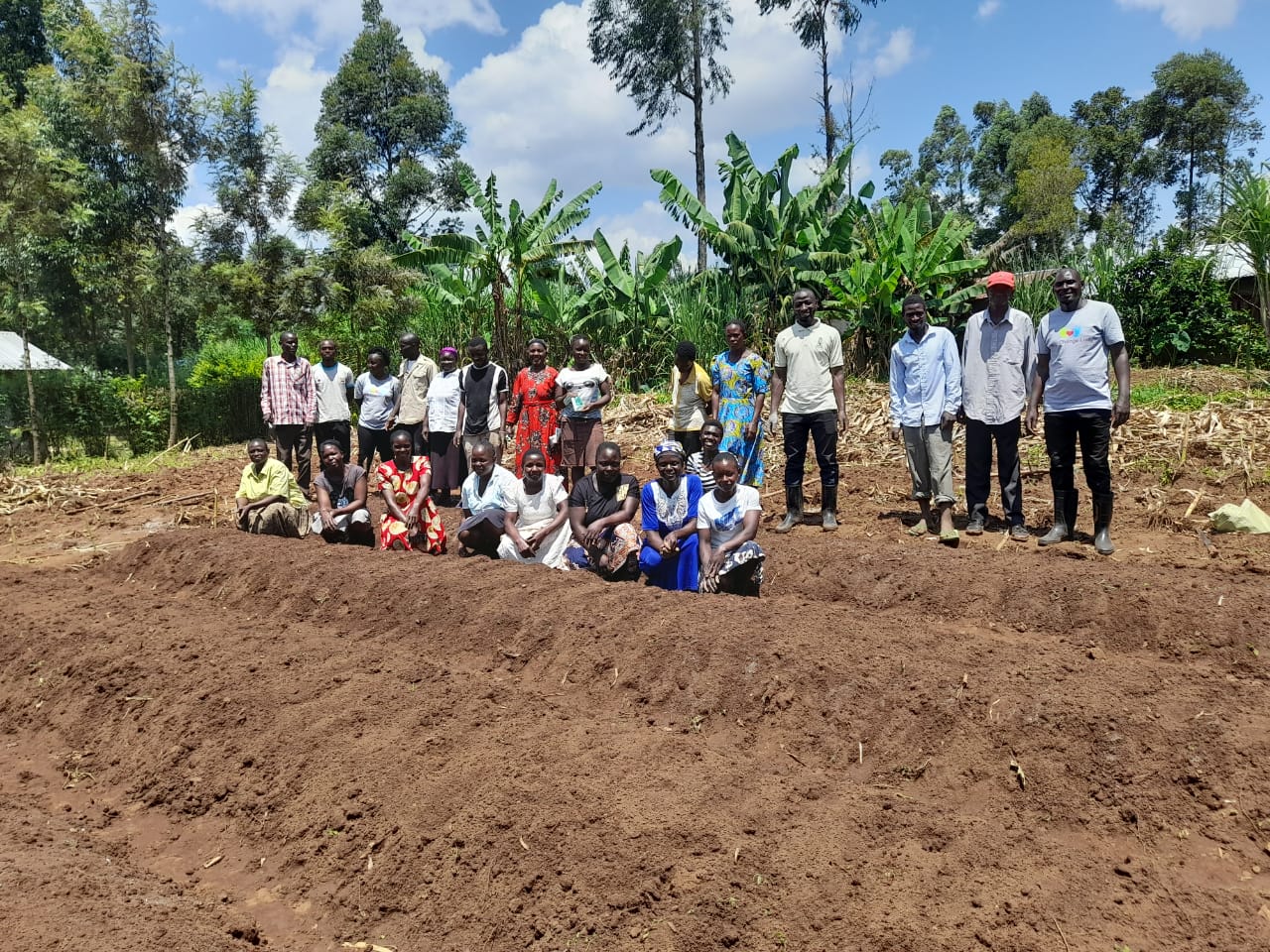
What’s the best advice your students have given you?
My students are always giving me lots of useful advice. Sometimes they advise me to change the time of the practical side of lesson due to the weather conditions i.e. if the sun is over shining that we should do practical work earlier. They also like to help me to make sure that all the students can be active in class and participate.
They suggest different games and energisers to help with this and also that we do recaps of previous learning to make sure it has stayed in their minds. The best advise they have given me is to never give up and to be resilient no matter what the situation. Since they have survived on the streets they are living proof that anything is possible.
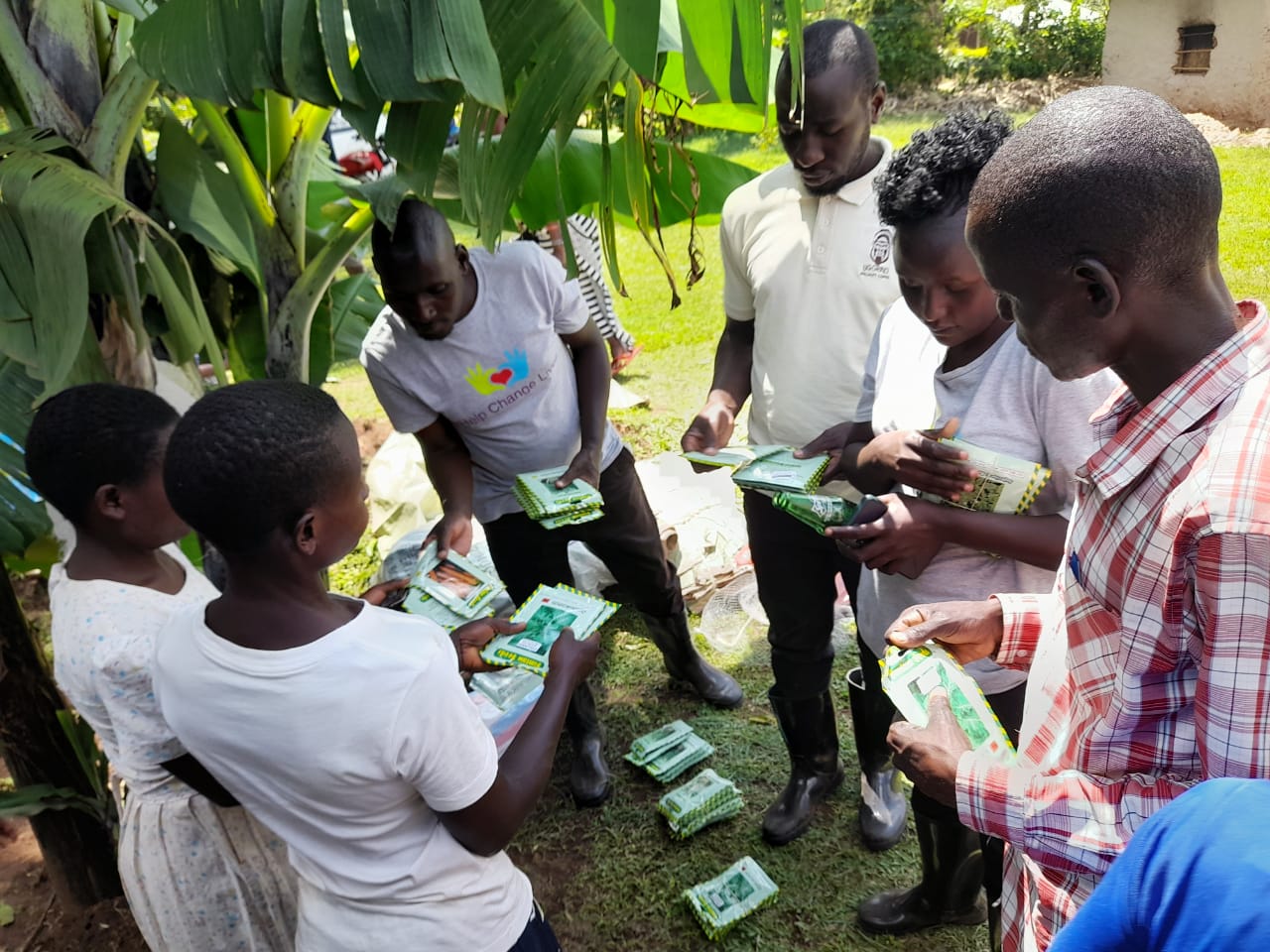
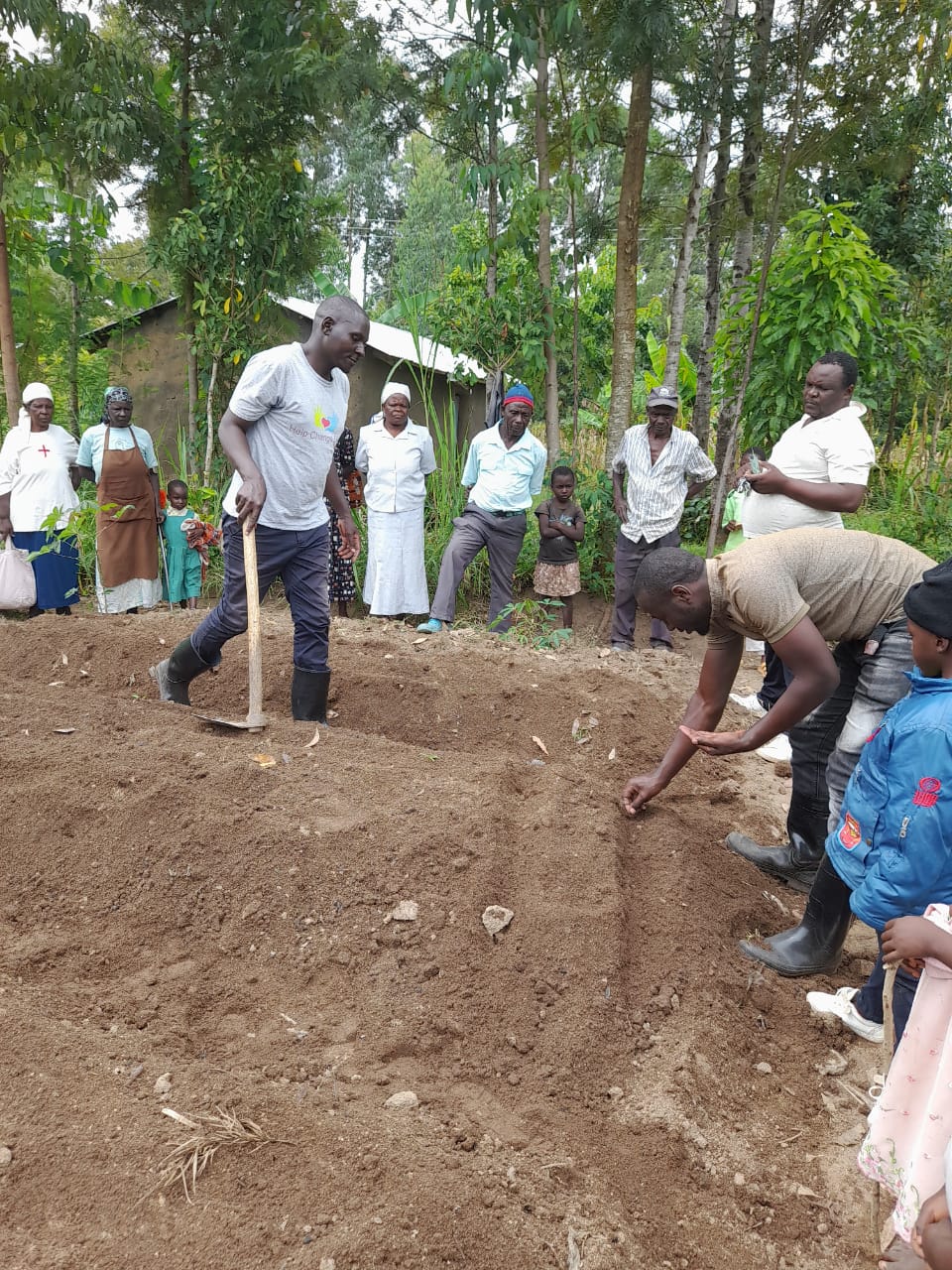
What are your main challenges as a teacher?
There is a challenge of teaching different children with varying age and education levels within the same class which makes some kids struggle to participate fully due to some topics taught at that time being the wrong difficulty level for them. There is also a challenge of inadequate learning materials about permaculture, for example textbooks, fictional books, educational videos etc. which include children that look like them. There is also limited access to learning research centres for permaculture work in Uganda, where you could take the children on field trips.
How does teacher shortage affect you in your daily working life?
It makes it hard to give children enough individual attention and for them not to concentrate well in class if the group of students is too large for a teacher to handle or involves a lot of children with additional needs. It affects children’s ability to get feedback in class as it’s not easy to monitor all children at the same time when they are performing assigned activities. My favoured topic of permaculture is not one where there are many teachers trained, and yet it is a vital one for our planet so I hope that it is more of a priority going forwards to train more permaculture teachers.
Do you feel valued as a teacher? Why? Why not?
Yes, I feel valued as a teacher, for example in my country Uganda, teachers have their special day in which they are recognised and celebrated for the work they do towards changing lives of people and reducing the level of illiteracy in communities. More so, there are some associations and network platforms that are comprised of teachers in which they gather and share knowledge concerning different fields like farming, climate change control, and how they can sustainably use renewable and non-renewable resources available without affecting the environment. These make you feel part of a movement for positive change and valued for your contributions.
How do you think the teaching profession could be better valued?
- Through creating more teacher learning platforms and opportunities in which study resources are shared from different parts of the world.
- Regular refresher trainings about changing aspects: for example in permaculture, we have different crops and animal breeds which are better able to adapt to the changing environmental conditions in order to improve on yields and productivity respectively and new research is being produced all the time.
- Through having study trips across the world to model farms and research centres to have access to different farming ideas and technologies being used to inspire us further.
How do you think the teaching profession could be better supported? From whom do you receive the most support?
Families should always encourage children to attend classes regularly in order not to miss some vital information. They should also show interest in their children’s learning by asking them questions about it, so they also get to learn and the children get to teach. Children should always be provided with learning materials like field trips, books and pens to help the learning process. Institutions should train children with a range of skills in order for them not to be job seekers in the future but job creators through vocational skills like farming and many others.
Meet Joshua
Ariho Joshua is a Permaculture teacher at S.A.L.V.E. International. He trains street connected children and their families in permaculture principles (health, ecology, fairness and care) so they build sustainable futures. He is passionate to share organic agriculture knowledge as a way of combatting climate change. He has a certificate in plant pest and disease diagnosis from the Centre for Agriculture and Biosciences International. He also has organic farming qualifications from Kachwekano Zonal Agriculture Research Development Institute. He loves sharing his knowledge far and wide, most recently in Kenya where he trained families in permaculture skills with Help Change Lives organisation.


